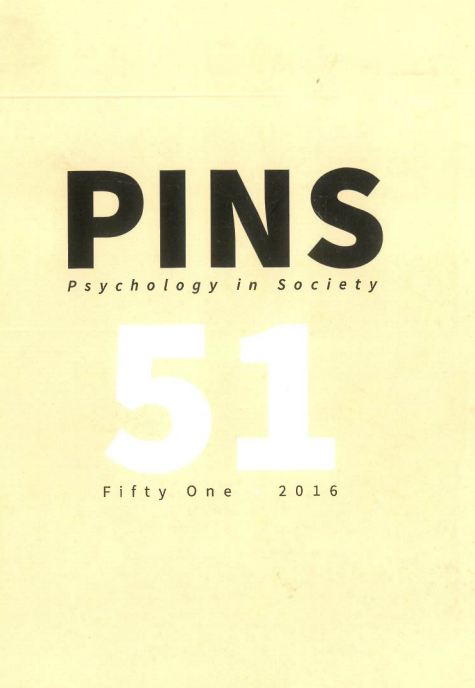“Loving thy neighbour” in times of violence: Social cohesion and collective efficacy in South Africa
DOI:
https://doi.org/10.17159/2309-8708/2016/n51a1Keywords:
social cohesion, collective efficacy, social capital, solidarity, violence, global south, law, constitutionAbstract
This article engages with the problematic of violence and its relationship to conditions of solidarity at a local level in the newly democratised nation-state of South Africa. It explores this question through the concept of social cohesion, which has become a significant part of South African discourse over the past decade and has been the object of policy concern in the global north since the 1990s. More recently the concept of social cohesion has been linked to the question of violence through the theory of collective efficacy, which sees social cohesion enacted in support of the “common good” as functioning as a critical “protective” factor against violence. The paper interrogates these international and local discourses around social cohesion and its relation to violence through an ethnographic examination of the empirical conditions of solidarity and violence in one township, Khayelitsha, in the Western Cape, South Africa. The article reveals the dissonances between the material conditions in Khayelitsha, international discourses on social cohesion and the South African state’s aspirations towards new forms of civic solidarity founded on a Constitutionally defined “common good”. Instead collective, informal, and sometimes violent forms of social order based on communitarian values and practices, displace or contest the state’s law and shape forms of sociality that offer both extraordinary support and the possibility of spectacular violation.
Downloads
Downloads
Published
How to Cite
Issue
Section
License
This journal is an open access journal, and the authors' and journal should be properly acknowledged, when works are cited.
Authors may use the publishers version for teaching purposes, in books, theses, dissertations, conferences and conference papers.
A copy of the authors’ publishers version may also be hosted on the following websites:
- Non-commercial personal homepage or blog.
- Institutional webpage.
- Authors Institutional Repository.
The following notice should accompany such a posting on the website: “This is an electronic version of an article published in PINS, Volume XXX, number XXX, pages XXX–XXX”, DOI. Authors should also supply a hyperlink to the original paper or indicate where the original paper (http://www.journals.ac.za/index.php/pins) may be found.
Authors publishers version, affiliated with the Stellenbosch University will be automatically deposited in the University’s’ Institutional Repository SUNScholar.
Articles as a whole, may not be re-published with another journal.
The copyright of the article(s) lies with the author(s).
The copyright of the journal lies with PINS-psychology in Society.
The following license applies:
Attribution CC BY-NC-ND 4.0 - https://creativecommons.org/licenses/by-nc-nd/4.0/

